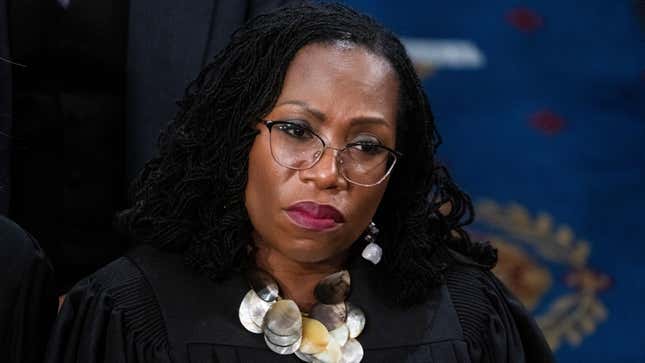The Supreme Court Quietly Issued Ruling on Minors’ Abortion Rights. Only Ketanji Brown Jackson Dissented.
Other justices deemed that a lower court ruling allowing a Missouri teen to get abortion without parental notification is moot post-Roe v. Wade.
AbortionPolitics

On Monday, the Supreme Court quietly ruled to vacate a lower court decision supporting minors’ abortion rights. The lower court ruling, handed down by the 8th U.S. Circuit Court of Appeals in Missouri last April, upheld that minors have a right to get abortion care without parental notification if they obtain permission from a judge. Justice Ketanji Brown Jackson was the lone justice on the bench who dissented against striking this down.
The Supreme Court didn’t offer a detailed explanation or render written opinions other than Jackson’s dissent. Its decision seems rooted in the overturning of Roe v. Wade—abortion is banned in Missouri, rendering the 8th Circuit’s decision last year moot. Jackson disputed this legal conclusion, arguing that the court has been too liberal with nullifying lower courts’ decisions lately, in the absence of “extraordinary circumstances.”
-

-

-

-

-

-

-

-

-

-

-

-

-

-

-

-

-

-

-

-

-

-

-

-

-

-

-

-

-

-

-

-

-

-

-

-

-

-

-

-








































